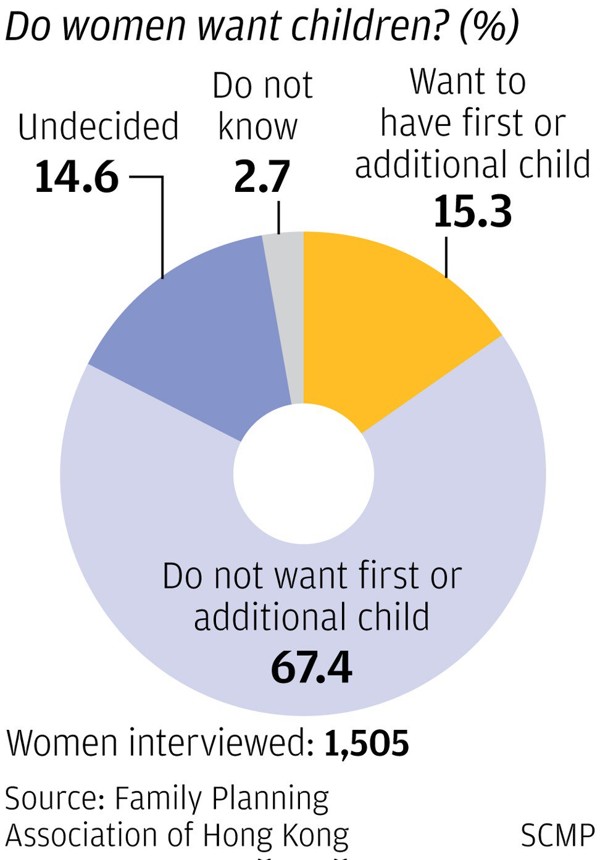
Trend of low fertility in Hong Kong is here to stay, whatever the government may do
- Paul Yip says the latest findings confirm the city’s intractable below-replacement birth rate. Yet, while efforts to raise the rate are likely to be futile, couples who want to raise kids should still be given the support they need
Another important result concerns the gap between the ideal and actual number of children. The survey found that women’s ideal number has remained at about 1.6 since 2002 but they had on average 1.28 children, only slightly higher than the record low of 1.24 in 2012. The proportion of women with one child (38.5 per cent) has continued to rise over the past 20 years and exceeds the proportion of women with two children (34 per cent).
It is an important issue for married women, especially as some 15 per cent said they are undecided about having children – a 30-year high. The “heavy financial burden” and “heavy responsibilities” were cited as the main reasons for having no children or only one child. “Wanting more time and space for personal development” was the third-most-common reason given by women who did not wish to have any children.

Financial incentives seem to be more effective for couples without children, but the impact of such support diminishes for those who already have kids, as they have real experience of the difficulties involved in raising children. They put more emphasis on accessibility to quality child care, for example. Overall, the experience of raising the first child has an important influence on the decision whether to have another.
People getting married at an older age is also a contributing factor to a low birth rate. Expensive housing, long working hours, and unstable working conditions are some reasons why people delay getting wed in Hong Kong.
The latest study shows Hong Kong couples need more concrete support to remove barriers to having children. Financial incentives, strengthened social support for parents, free preschool education and improvement in the quality of education are some of the preferred measures. The other important concern is living space. Due to expensive housing, Hong Kong couples sometimes have to compromise on the size of their family. To raise fertility rates, single measures won’t be enough to change the mind of married couples.
Hong Kong, as with many other high-income Asian economies, has fallen into a fertility trap. One-child families are now typical. It is very unlikely that total fertility rates will bounce back to 2.1. Today, competition in the labour market has become even fiercer, increasing economic insecurity and the opportunity cost of having children. Rising divorce rates and the increasing number of women choosing not to get married are also factors in the ultra-low fertility rate in Hong Kong.
It is ultimately futile to try to rejuvenate the population through a natural increase in fertility levels. Nevertheless, the government should still provide support for those who want more children. In many ways, having children should not only be an individual choice; collective responses and societal support should be available.
Perhaps, more realistically, we should improve the quality of the population by investing in education and training to make up for the shortfall in workforce numbers.
Paul Yip is a chair professor at the University of Hong Kong and was chairman of the Family Planning Knowledge, Attitude and Practice study for the Family Planning Association in 2017

